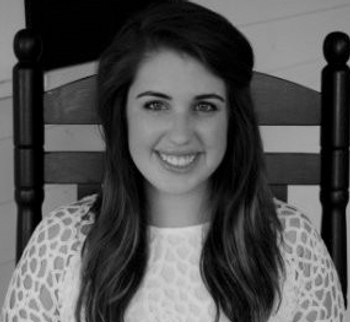‘UNC KKK WTF’: Students demand UNC rename building named after possible KKK member
Saunders Hall was named after William Saunders, an alleged Grand Dragon of the North Carolina chapter of the Klu Klux Klan.
Student activists have renewed the fight to rename Saunders Hall to Hurston Hall after Zora Neale Hurston, a famed author who was the first black student to take classes at the university before it was integrated.
The fight to rename buildings honoring former potential Klu Klux Klan leaders on the campus of the University of North Carolina at Chapel Hill has reached the university’s Board of Trustees.
At the board’s April meeting on Thursday, the Real Silent Sam coalition, faculty members, and other student activists presented the board with their positions on the issue.
“It was evident from being there that the Board of Trustees is taking this issue very, very seriously,” Frank Pray, president of the UNC College Republicans and editor-in-chief of the Carolina Review, told Campus Reform. “Obviously they’re very concerned about how their students feel on our campus. They want all their students to feel welcome and safe on campus and have it be a place where we can all learn.”
Student activists have renewed the fight to rename Saunders Hall this year. The building is named after William L. Saunders, who was allegedly a Grand Dragon of the North Carolina chapter of the Klu Klux Klan. Saunders was also a UNC alumnus and a university trustee.
The Real Silent Sam Coalition protested at the event by wearing all black to “make [their] collective presence known,” according to their Facebook event promoting the protest. They chanted, “Can you see us now?” at the meeting.
During the presentations, the group held signs that read “#BlackLivesMatter,” “UNC KKK WTF,” and “Will 2015 be the year the BOT stops fighting for the Confederacy?”
The coalition is calling on the board to rename Saunders Hall to Hurston Hall after Zora Neale Hurston, a famed author who was the first black student to take classes at the university before it was integrated.
They are also pushing to place a plaque on a campus statue called Silent Sam to educate the campus about its history in regards to racial relations.

As previously reported by Campus Reform, the Real Silent Sam Coalition—a group of UNC students, faculty, and community members—protested the university because of academic scandals, which they blamed on white supremacy and capitalism.
Pray also spoke at the meeting to present the position of campus conservatives at the request of student body president Andrew Powell.
Pray told Campus Reform that the College Republicans are in favor of renaming Saunders Hall because Saunders was the leader of the KKK, which was “a terrorist organization.” However, they do not believe the university should rename other buildings on campus.
“Going back and trying to rename other buildings named after people who simply held racist viewpoints that were very common at the time turns into trying to erase our history rather than not honoring someone who was leading a terrorist group,” Pray said. “We think that there is a difference there that anyone who is being intellectually honest needs to recognize.”
Pray emphasized that he believes that while those whose ideals go against the values the United States are founded on should not be honored, the UNC community must be careful about erasing it’s history.
“A lot of what we see coming out of the left today is them trying to rewrite history—sort of whitewash history—and erase some of the negative aspects and even some of the positive aspects in favor of just going forward and moving forward in the name of progress and abandoning everything we’ve had in the past,” Pray said. “I think that that is a very dangerous thing to be doing to sort of let go of one’s history.”
The Board of Trustees heard the positions of the eight presenters—including the Real Silent Sam Coalition, Pray, faculty members, and alumni, along with a report produced by board members Chuck Duckett and Alston Gardner, in which they compiled research and the positions of outside historians, students, and experts.
According to the report, “there are no primary documents or written evidence that Saunders was ever a member or a leader of the KKK.” However, “the 1920 UNC Board of Trustees identified Saunders as the head of the KKK.”
The board has now opened the discussion to the public and asked for comments from those surrounding the UNC community through April 25.
Follow the author of this article on Twitter: @KateGrise

